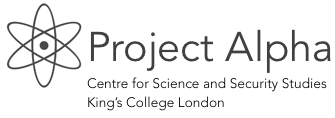The UK and US are out of step on terror listings, and that's probably fine
By Nick Gillard, King's College London and Ian J. Stewart, King's College London
The UK government is planning one of the biggest shake-ups of counter-terrorism legislation in a decade. Home Secretary Theresa May is planning to prohibit insurers from reimbursing ransoms paid out to terrorists – and that’s just the first of many planned new measures.
What is not clear though, is what the UK will do about individuals already named by Europe or the UN as involved in terrorism. It has been been suggested by at least one commentator, Conservative MP Stephen Barclay, that Whitehall should align its approach with the US, rather than Brussels and the UN.
The UK and the US both publish what are called sanctions designations. Thousands of individuals and companies are named on these lists if they are suspected of being involved in terrorism, arms trafficking, the proliferation of weapons of mass destruction, human rights abuses or other international crimes. Listed entities are subject to asset freezes, and sometimes travel bans and other restrictions.
But even though the US has long been the UK’s main ally and intelligence partner on counter-terrorism, the UK continues to take its lead from Europe and the UN when it compiles these lists. In fact, the UK’s sanctions lists for terrorists and WMD proliferators are not at all consistent with those of the US. This inconsistency is one of Barclay’s main grievances.
It’s a situation that warrants some explanation. The main reason the UK and US designation lists are different is that the UK has little or no say in who the US designates as a terrorist, WMD proliferator or human rights violator. EU and UN Security Council sanctions are built with British input at every stage. America’s designation measures, on the other hand, are unilateral. They are sometimes made in consultation with other governments, but most often not.
Partnering up with the US when compiling the lists is probably not even possible. Washington would be highly unlikely to invite another member into its already byzantine sanctions-making apparatus, even one with whom they have a special relationship.
Even if the UK sought to copy the US listings without trying to get involved in their formulation, the British courts – and EU legal eagles – would no doubt have something to say about it. Courts across the Atlantic have very different approaches to human rights and privacy so many of the people or companies listed in the US could not be published on UK lists.
Blacklisting the blacklists
Judges in London and on the continent are already applying intense pressure on sanctions designations made in Whitehall and Brussels. In 2010, for example, the UK Supreme Court overturned a decision to freeze the assets of five suspected supporters of terrorism, describing the move as “draconian”. And in Europe, several Iranian companies accused of being involved in Iran’s nuclear programme by the European Council successfully challenged their listings and won large pay-outs.
Cases are particularly vulnerable to scrutiny if they are based on secret intelligence. Courts have been understandably reluctant to accept assurances from governments that they have followed due process before imposing sanctions on suspects. And given that national authorities are reluctant to release the intelligence that frequently lies behind the decisions, sanctions often fall over.
Flag it
There is also nothing stopping UK security services or border agencies from adding US-designated suspects of terrorism or proliferation to their red-flag or watch lists, which are not made public.
Similarly, businesses – be they banks, exporters or shippers – working in areas where they might encounter individuals or companies involved in terrorism or proliferation should be screening their customers against all national and multilateral sanctions designation lists, regardless of which authority has issued them.
Ultimately, Barclay’s concerns reflect a longstanding problem. The lists used by various governments over the world are inconsistent. Our global patchwork of sanctions is flawed and often inconvenient to collate and parse. But when the alternative is massive reform to the law and political wranglings on an international scale, it is perhaps better to leave well alone.
Nick Gillard works for Project Alpha, a King's College London initiative to counter illicit, proliferation-related trade. Project Alpha receives funding from the UK Department of Energy and Climate Change, MacArthur Foundation, and Carnegie Corporation of New York.
Ian J. Stewart works for Project Alpha, a King's College London initiative to counter illicit, proliferation-related trade. Project Alpha receives funding from the UK Department of Energy and Climate Change, MacArthur Foundation, and Carnegie Corporation of New York.
This article was originally published on The Conversation. Read the original article.

